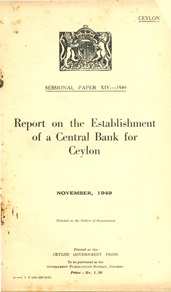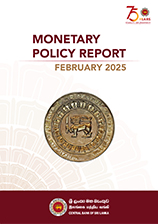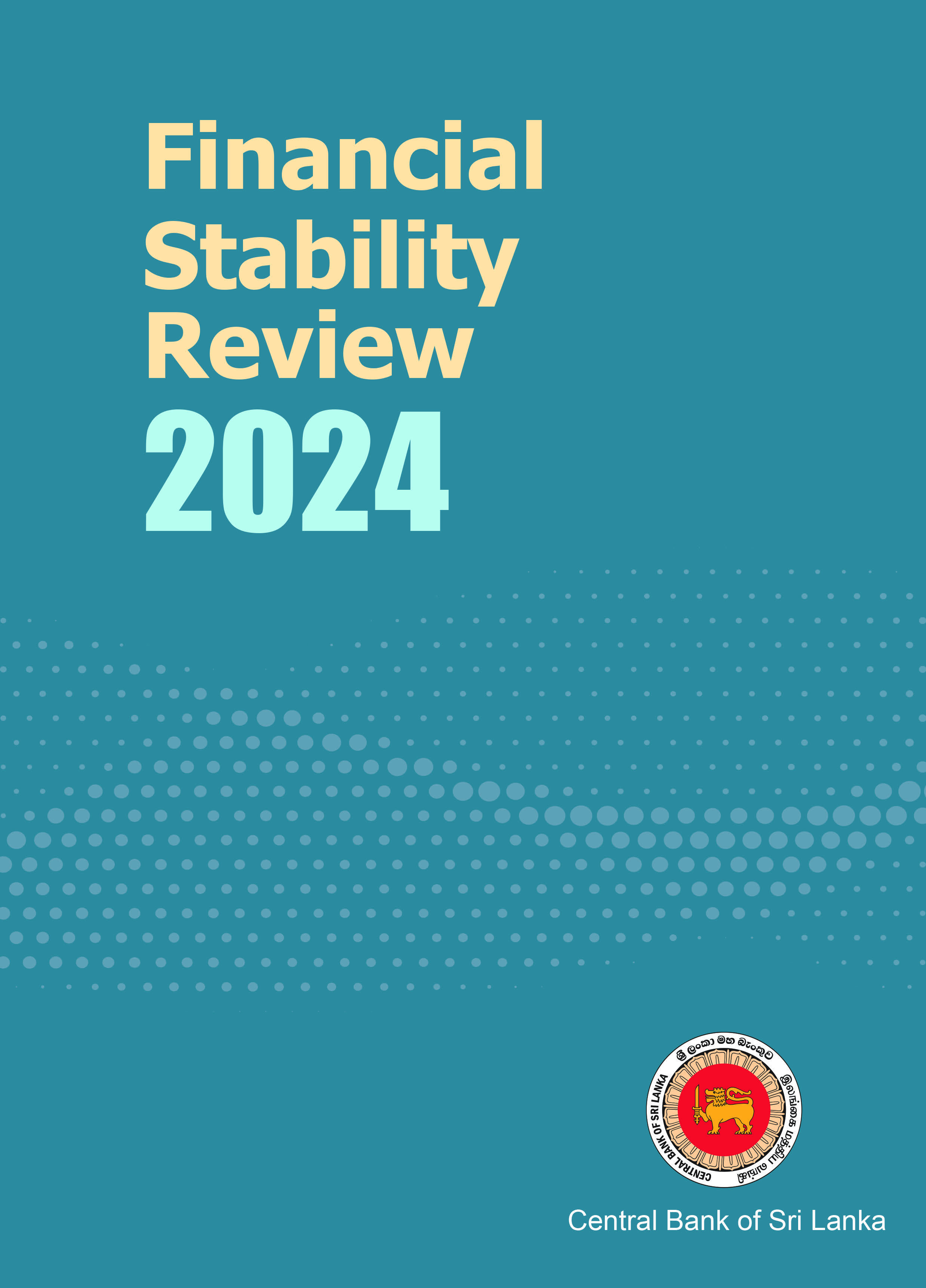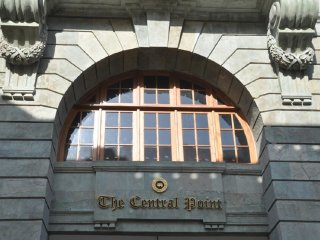The Monetary Board of the Central Bank of Sri Lanka, acting in terms of the Regulations made under the Registered Stock and Securities Ordinance and the Local Treasury Bills Ordinance, has decided to extend the suspension of business and activities of the Primary Dealer Unit of Pan Asia Banking Corporation PLC (PABC) for a period of six months with effect from 10.00 a.m. on 15th February 2019, in order to continue the investigations being conducted by the Central Bank of Sri Lanka.
-
Regulatory Action on a Primary Dealer - Pan Asia Banking Corporation PLC
-
Suspension of Business of NatWealth Securities Limited
The Monetary Board of the Central Bank of Sri Lanka (CBSL) at its meeting held on 30.05.2019, having considered the continuous failure to comply with directions applicable to primary dealers, acting in terms of the Regulations made under the Registered Stocks and Securities Ordinance and the Local Treasury Bills Ordinance, has decided to suspend NatWealth Securities Limited (NWSL) from carrying on the business and activities of a Primary Dealer for a period of six months with effect from 4.30 p.m. on 31.05.2019.
The CBSL will take necessary measures to ensure that this regulatory action does not have a disruptive impact on the Government Securities market. Action will also be taken to facilitate the handling of the interests of the customers and counterparties of NWSL in an orderly manner.
-
Monetary Policy Review - No. 3 of 2019
The Monetary Board of the Central Bank of Sri Lanka, at its meeting held on 30 May 2019, decided to reduce the Standing Deposit Facility Rate (SDFR) and the Standing Lending Facility Rate (SLFR) of the Central Bank by 50 basis points to 7.50 per cent and 8.50 per cent, respectively. The Board arrived at this decision following a careful analysis of current and expected developments in the domestic economy and the financial market as well as the global economy, with the broad aim of stabilising inflation at mid-single digit levels in the medium term to enable the economy to reach its potential.
-
External Sector Performance - March 2019
During the first quarter of 2019, the deficit in the trade account contracted to US dollars 1,661 million from US dollars 2,982 million recorded in the first quarter of 2018, as export earnings increased by 5.6 per cent (year-on-year) while import expenditure declined by 19.3 per cent.
In March 2019, the deficit in the trade account narrowed to US dollars 592 million, compared to US dollars 871 million in March 2018.
The considerable reduction in the trade deficit in March 2019 was due to anotable decline in import expenditure by 12.6 per cent (year-on-year)which was further supported by the increase of exportearnings by 2.6 per cent (year-on-year).
-
Inflation Increased in April 2019
Headline inflation as measured by the year-on-year change in the National Consumer Price Index (NCPI, 2013=100) increased to 3.6 per cent in April 2019 from 2.9 per cent in March 2019 due to the monthly increases of prices of items in both Food and Non-food categories. Meanwhile, in April 2019, year-on-year Food inflation was -1.2 per cent while Non-food inflation continued its increasing trend for the fourth consecutive month recording a 7.5 per cent in the current month.
The change in the NCPI measured on an annual average basis increased to 1.9 per cent in April 2019 from 1.7 per cent in March 2019.
-
Sri Lanka Purchasing Managers’ Index - April 2019
Manufacturing activities contracted recording the all-time low index value of 41.0 in April 2019 with a decline of 25.9 index points from March 2019. The decline of manufacturing PMI is mainly driven by the significant drop in New Orders and Production especially in manufacturing of food, beverages and tobacco and manufacturing of textiles, wearing apparels, leather and related activities products. This decline was mainly due to the New Year holidays in April and the security concerns that arose following the Easter Sunday attack which affected the smooth functioning of factory operations. Most respondents, especially in textile and apparel sector, highlighted that they had to restrict working hours in factories due to security concerns and were unable to achieve the desired production levels.
-
Regulatory Actions Taken by the Central Bank of Sri Lanka on The Finance Co PLC
The Monetary Board of the Central Bank of Sri Lanka (CBSL) initiated a number of regulatory actions, as temporary measures, under the provisions of FBA, on The Finance Company PLC (TFC) with effect from 15th February 2019, with a view to safeguard the interests of the depositors and other stakeholders of the company. Regulatory measures include suspension of accepting new deposits, withdrawal of deposits and disbursement of loans and advances to facilitate the restructuring process of TFC.
-
The International Monetary Fund Releases the Sixth Tranche of US Dollars 164.1 Million Under the Extended Fund Facility
The Executive Board of the International Monetary Fund (IMF) completed the Fifth Review under Sri Lanka’s Extended Fund Facility (EFF) approving the disbursement of the sixth tranche amounting to SDR 118.5 million (approximately US dollars 164.1 million). The Executive Board also approved an extension of the arrangement by one year, until June 2020, and rephased the remaining disbursements.
-
Sale of Subsidiaries Sub-subsidiaries and Investment Properties of ETI Finance Ltd
The Central Bank of Sri Lanka has taken number of measures on ETI Finance Ltd (ETIF) to address various irregularities taken place since 2011, including severe liquidity constraints faced by the company during the latter part of 2017.
Considering the extremely vulnerable liquidity position of ETIF and its inability to repay the depositors, the Monetary Board (MB) of the Central Bank of Sri Lanka (CBSL)issued directions on 02.01.2018, restricting the operations of the company. Further, based on a proposal submitted by the company, MB gave its concurences on 21.02.2018 to dispose identified subsidiary, sub-subsidiary companies and investment properties of ETIF for a total consideration of USD 75 mn, with the view of repaying the depositors utilising the sale proceeds.
-
Measures to Reduce Lending Rates and Drive Credit Flows to Small and Medium Enterprises (SMEs) Sector
The Central Bank of Sri Lanka has observed high interest rates charged on lending products and excessively high interest rates offered on deposit products by licensed commercial banks and licensed specialized banks (licensed banks) and Non-Bank Financial Institutions (NBFIs) despite the measures taken to bring down overnight interest rates and enhance market liquidity through the reduction of Statutory Reserve Ratio (SRR). Especially in the context of well contained inflation and inflation expectations, Sri Lanka’s interest rates in real terms also have been found to be excessive in comparison to other regional economies.










